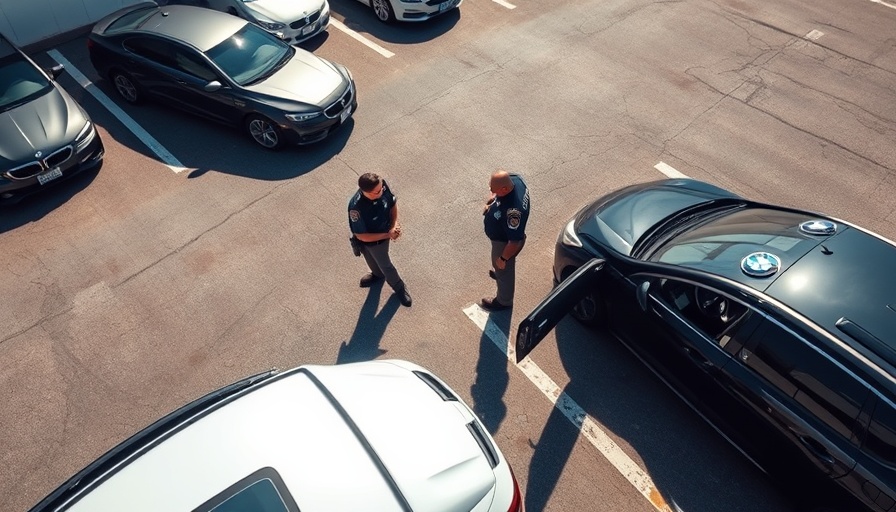
The Critical Need for Police Training in Emergency Situations
In ultra-high-pressure situations, police officers need extensive training to ensure they can respond effectively. This incident in Corona, California, highlights not only the essential skills required to handle emergencies but also the quick thinking that makes the difference between life and death. In the case of the infant trapped in a scorching car, officers had to act swiftly, and their training allowed them to make the right decision— using a baton to breach the vehicle's window and rescue the distressed child.
Technology and Its Role in Law Enforcement
This incident brings to mind how modern technology, such as body cameras, plays a vital role in contemporary policing. The footage captured during the rescue serves as a valuable tool not just for accountability, but also for assessing police actions in high-stress environments. These recordings can guide training programs, illustrating how to handle critical incidents and improve response times, which could ultimately save lives.
Impact of Public Perception on Police Conduct
Public perception surrounding police conduct can greatly influence law enforcement practices. Incidents like this revive discussions around transparency and accountability within police departments. It's essential for law enforcement agencies to maintain a positive relationship with the communities they serve. In cases of child emergencies, a clear demonstration of effective police response can significantly improve public trust.
Future Trends in Police Emergency Responses
The situation in Corona is not an isolated incident; rather, it signals a growing trend in employing innovative training methods that focus on emergency response. With the integration of advanced police training programs, departments are beginning to adopt simulations that prepare officers for high-pressure scenarios. This not only enhances officer wellness but also encourages better judgment in potentially dangerous situations.
Empowering Officers Through Resilience
Officers face tremendous stress, and their wellness directly impacts their decision-making abilities. Ensuring wellness programs are in place, especially following high-stress situations, is critical. Mental health resources, peer support programs, and debriefing sessions can make a marked difference for officers involved in potentially traumatic incidents, helping them to process their experiences and reinforce their commitment to community safety.
Conclusions and Call to Action: Supporting Police Departments
It is crucial for police departments across the nation to continue investing in training, technology, and officer wellness programs. The Corona Police Department’s swift action can serve as a model for other agencies. As a community, let us advocate for policies that bolster public safety through responsible budgeting, which prioritizes officer training and mental health resources. Together, we can ensure that our police departments are equipped to handle emergencies with efficiency and compassion, ultimately enhancing police-community relations.
 Add Row
Add Row  Add
Add 

 Add Element
Add Element 


Write A Comment